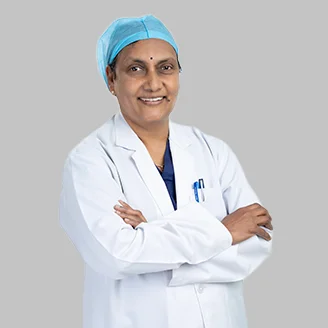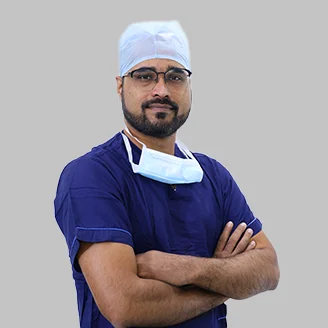-
Doctors
-
Specialities & Treatments
Centre of Excellence
Specialties
Treatments and Procedures
Hospitals & Directions HyderabadCARE Hospitals, Banjara Hills CARE Outpatient Centre, Banjara Hills CARE Hospitals, HITEC City CARE Hospitals, Nampally Gurunanak CARE Hospitals, Musheerabad CARE Hospitals Outpatient Centre, HITEC City CARE Hospitals, Malakpet
HyderabadCARE Hospitals, Banjara Hills CARE Outpatient Centre, Banjara Hills CARE Hospitals, HITEC City CARE Hospitals, Nampally Gurunanak CARE Hospitals, Musheerabad CARE Hospitals Outpatient Centre, HITEC City CARE Hospitals, Malakpet Raipur
Raipur
 Bhubaneswar
Bhubaneswar Visakhapatnam
Visakhapatnam
 Nagpur
Nagpur
 Indore
Indore
 Chh. Sambhajinagar
Chh. SambhajinagarClinics & Medical Centers
Book an AppointmentContact Us
Online Lab Reports
Book an Appointment
Consult Super-Specialist Doctors at CARE Hospitals

Kidney Transplant
Kidney Transplant
Best Kidney Transplant Hospital in Hyderabad, India
A kidney transplant is a procedure mainly to replace a non-functioning kidney with a healthy kidney from a donor. A kidney is a bean-shaped organ that is located on each side of the spine and below the rib cage. The main functions of the kidney are to remove wastes and fluids from the body in the form of urine.
When the kidney fails to perform these functions, harmful wastes accumulate in the body leading to kidney failure and high blood pressure. When the kidney loses its ability to function normally it leads to renal disease.
Some of the common diseases that could be caused due to kidney failure are diabetes, uncontrolled blood pressure, and polycystic kidney diseases. When there is kidney failure in a person the wastes have to be removed through a procedure called dialysis.
Types of the Kidney Transplant
There are different types of kidney transplants based on the source of the donor kidney and the relationship between the donor and the recipient. The main types include:
- Living Donor Kidney Transplantation:
- Related Living Donor: The donor is a blood relative of the recipient, such as a parent, sibling, or child.
- Unrelated Living Donor: The donor is not biologically related to the recipient but may be a friend or someone who is willing to donate altruistically.
- Deceased Donor Kidney Transplantation:
- Cadaveric Deceased Donor: The kidney is obtained from a deceased person who has chosen to donate their organs, typically through a designated organ donor program.
- Expanded Criteria Donor (ECD): In some cases, kidneys from older deceased donors or donors with certain health conditions may be used. These kidneys may have a higher risk of complications, but they can still be valuable in expanding the pool of available organs.
- Paired Exchange (Kidney Swap): In situations where a living donor is not a compatible match for their intended recipient, paired exchange programs allow for a swap between two pairs of donors and recipients to find a better match. This can involve two or more pairs participating in a chain of kidney transplants.
- Domino Kidney Transplant: A domino transplant involves a chain of kidney transplants where the organs are passed down a line of donors and recipients. This often starts with a living donor and continues as each recipient receives a new kidney.
- ABO-Incompatible Kidney Transplant: Normally, blood type compatibility is crucial in organ transplantation. However, ABO-incompatible transplants involve intentionally transplanting a kidney from a donor with a different blood type than the recipient, with the use of immunosuppressive medications to manage potential complications.
- Pre-emptive Transplantation: Some kidney transplants are performed before the recipient starts dialysis. This is known as pre-emptive transplantation and is associated with better long-term outcomes compared to transplantation after a period of dialysis.
A kidney transplant is done usually when there is kidney failure and the functions are not performed. Dialysis is one of the options to help overcome kidney failure, however, but spending the whole life in dialysis can be very painful. So the best and most permanent solution is a kidney transplant. This also helps to treat chronic disease or renal disease.
Risk factors of a kidney transplant
A kidney transplant becomes very important to help treat several diseases. However, there are chances that sometimes the patient’s body starts rejecting the donor's kidneys. This also occurs because of the medication. Therefore, it is advised that you talk to your doctor at CARE Hospitals for complete information.
However, potential complications and risk factors include:
- Rejection: The recipient's immune system may recognize the transplanted kidney as foreign and mount an immune response, leading to rejection. Immunosuppressive medications are prescribed to help prevent rejection.
- Immunosuppression Side Effects: Medications used to suppress the immune system and prevent rejection can have side effects, including an increased risk of infections, diabetes, high blood pressure, and bone thinning.
- Infection: The immunosuppressive drugs may increase the susceptibility to infections. Infections can affect the transplanted kidney or other parts of the body.
- Surgical Complications: Risks associated with the surgical procedure include bleeding, blood clots, and damage to nearby organs or blood vessels.
- Delayed Graft Function (DGF): Sometimes, the transplanted kidney may not function immediately after transplantation, requiring temporary continuation of dialysis until the kidney starts functioning properly.
- Recurrence of Original Disease: In some cases, the underlying condition that led to kidney failure in the first place (such as certain types of kidney diseases) can recur in the transplanted kidney.
- Cardiovascular Issues: Kidney transplant recipients may be at an increased risk of cardiovascular diseases, including heart attacks and strokes.
- Cancer Risk: Long-term use of immunosuppressive medications may slightly increase the risk of certain cancers, such as skin cancer and lymphoma.
- Post-transplant Diabetes Mellitus (PTDM): Some individuals may develop diabetes after kidney transplantation, often attributed to the use of immunosuppressive medications.
- Bone Problems: Immunosuppressive medications can affect bone health, leading to conditions such as osteoporosis.
- Psychosocial Challenges: Adjusting to life after a kidney transplant may pose emotional and psychological challenges. Adherence to medications and lifestyle changes is crucial for long-term success.
- Financial and Insurance Issues: The cost of transplantation, immunosuppressive medications, and potential complications may pose financial challenges. Access to insurance coverage for pre-and post-transplant care is essential.
Benefits of a Kidney Transplant
Kidney transplantation offers numerous benefits to individuals with end-stage renal disease (ESRD) compared to other treatment options like dialysis. Some of the key advantages and benefits of kidney transplantation include:
- Improved Quality of Life: A successful kidney transplant can significantly enhance the quality of life for individuals with ESRD. It allows them to regain a sense of normalcy, freedom, and flexibility compared to the restrictions imposed by dialysis.
- Long-term Survival: Generally, kidney transplant recipients have a better long-term survival rate compared to individuals on dialysis. A successful transplant can provide an extended and healthier life.
- Elimination of Dialysis Dependence: Kidney transplantation eliminates the need for ongoing dialysis treatments. This can be a substantial relief, as dialysis is time-consuming, requires strict adherence to a schedule, and can be physically demanding.
- Improved Physical Health: With a functioning transplanted kidney, individuals often experience improved physical health, including increased energy levels, better appetite, and the ability to engage in more physical activities.
- Normalization of Fluid and Electrolyte Balance: Transplanted kidneys usually perform the natural functions of regulating fluid and electrolyte balance more effectively than dialysis. This helps in maintaining overall physiological balance in the body.
- Improved Cardiovascular Health: Kidney transplantation is associated with a reduced risk of cardiovascular complications compared to long-term dialysis. This can positively impact heart health and reduce the risk of heart-related issues.
- Better Control of Anemia: Transplanted kidneys usually produce erythropoietin, a hormone that stimulates red blood cell production. This can lead to better control of anemia, a common complication in individuals with kidney failure.
Kidney Transplant Procedure
A kidney transplant is performed by giving general anaesthesia, which means, you are not awake during the procedure and you don’t feel a thing. The team at CARE Hospitals will monitor the heart rate, blood pressure and oxygen level throughout the surgery.
The surgeon will make an incision to replace the old kidney with the donor one. The blood vessels of the new kidney are attached to the blood vessels in the lower part of the abdomen. The ureter of the kidney is connected to the bladder.
Some of the complications that might arise during the procedure could be blood clots and bleeding, leakage from the tube, infection and could be a possibility of rejection of the kidney that has been donated. Although it happens in very rare cases, you can always discuss the risks associated with the transplant with your doctor prior to the surgery.
Before the procedure
The search for a suitable kidney donor involves considering various factors, whether the donor is living or deceased, and whether they are related or unrelated to you. Your transplant team will assess several elements to determine the compatibility of a potential donor kidney.
- Tests conducted to assess the suitability of a donated kidney include:
- Blood typing: Ideally, the donor's blood type should match or be compatible with yours. ABO incompatible kidney transplants are possible but require additional medical interventions to mitigate organ rejection risks.
- Tissue typing: If blood types are compatible, the next step involves a tissue typing test, known as human leukocyte antigen (HLA) typing. This test compares genetic markers to increase the likelihood of the transplanted kidney having a longer lifespan. A good match reduces the risk of organ rejection.
- Crossmatch: The final matching test involves mixing a small sample of your blood with the donor's blood in the lab. This test determines whether antibodies in your blood might react against specific antigens in the donor's blood.
- A negative crossmatch indicates compatibility, reducing the likelihood of your body rejecting the donor kidney. Positive crossmatch kidney transplants are possible but require additional medical interventions to minimize the risk of your antibodies reacting to the donor organ.
During the procedure
Kidney transplant surgeries are conducted under general anesthesia to ensure patients are not conscious during the procedure. Throughout the operation, the surgical team closely monitors vital signs such as heart rate, blood pressure, and blood oxygen levels.
During the surgery
- The surgeon makes an incision on one side of the lower abdomen and implants the new kidney. Unless the patient's existing kidneys are causing issues like high blood pressure, kidney stones, pain, or infection, they are retained in their original position.
- The blood vessels of the new kidney are joined to blood vessels located in the lower abdomen, just above one leg.
- The ureter of the new kidney, the tube that connects the kidney to the bladder, is linked to the bladder.
After the kidney transplant
After the kidney transplant, you will be in the hospital for a few days where the doctors will monitor your condition. Once the doctors feel that the condition is stable then you will be sent home. You need to come for regular checkups and follow the doctor’s instructions accurately.
Medications have to be taken regularly throughout the lifespan. A successful kidney transplant will not require any dialysis anymore. It is very normal that one might feel anxious or overjoyed and might be having some kind of fear about rejection. In such cases, friends and family members help to cope with difficult times.
At CARE Hospitals, we bring you state-of-the-art infrastructure coupled with advanced technology. Our doctors and the entire staff strive to offer the best possible care to our patients. If you are suffering from any kidney conditions, visit your nearest CARE Hospitals today.
Click here for more details on the cost of this treatment.
Our Doctors
-

Dr. Manish Porwal
MBBS, MS, MCH
Cardiac Surgery
View More -

Dr. A. V. Venugopal
MBBS, MD, DM (Nephrology)
Nephrology, Renal Transplant
View More -

Dr. Ajay Parashar
MS, MCh (Urology)
Renal Transplant, Urology
View More -

Dr. Ajit Kumar Shadani
MBBS, MD (General Medicine)
General Medicine/Internal Medicine
View More -

Dr. Ashok Panda
MBBS, MD (Medicine), DM (Nephrology)
Nephrology, Renal Transplant
View More -

Dr. Bibekananda Panda
MBBS, MD, DNB (Nephrology)
Nephrology, Renal Transplant
View More -

Dr. G Rama Subramanyam
MBBS, MS, MCh (Cardiothoracic Surgery)
Cardiac Surgery
View More -

Dr. G. Usha Rani
MS, MCh
Cardiac Surgery
View More -

Dr. J.AL. Ranganath
MBBS, MD, DM (Nephrology)
Nephrology, Renal Transplant
View More -

Dr. Jyoti Mohan Tosh
MBBS, MS (General Surgery), Mch (Urology)
Renal Transplant, Urology
View More -

Dr. M Sanjeeva Rao
MBBS, MS, MCh (AIIMS)
Cardiac Surgery
View More -

Dr. P Vamsi Krishna
MBBS, MS, MCh
Renal Transplant, Urology
View More -

Dr. Pradip Saruk
MBBS, MD, DM Nephrology
Nephrology, Renal Transplant
View More -

Dr. Prawash Chaudhary
MBBS, MD (Medicine), DNB (Nephrology)
Nephrology, Renal Transplant
View More -

Dr. Ramiz Panjwani
MBBS, MD, DM
Nephrology, Renal Transplant
View More -

Dr. Ratan Jha
MBBS, DM, DNB, MD, DTCD (Gold Medallist), FISN
Nephrology, Renal Transplant
View More -

Dr. Sanjeev Anant Kale
MBBS, MD, DM, DNB, SGPGIMS
Nephrology, Renal Transplant
View More -

Dr. Sucharita Chakraborty
MBBS, MD (General Medicine), DM (Nephrology)
Nephrology, Renal Transplant
View More -

Dr. Sumanta Kumar Mishra
MBBS, M.S (General Surgery), M.CH (Urology, CMC, Vellore), DNB (Genito-Urinary Surgery)
Renal Transplant, Urology
View More
Frequently Asked Questions
Couldn’t find what you were looking for?
Need any help? Get a Call Back.

Still Have a Question?

